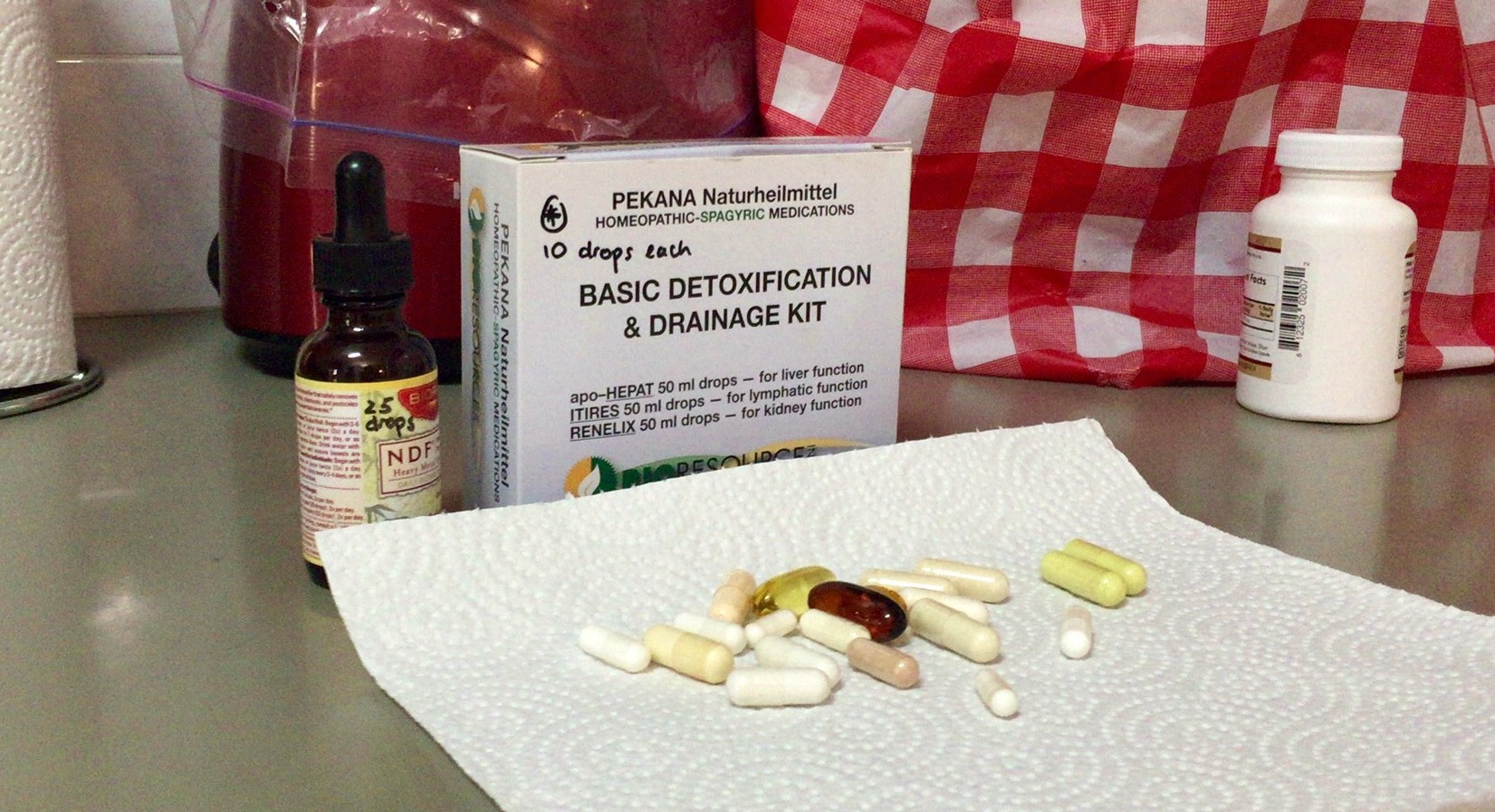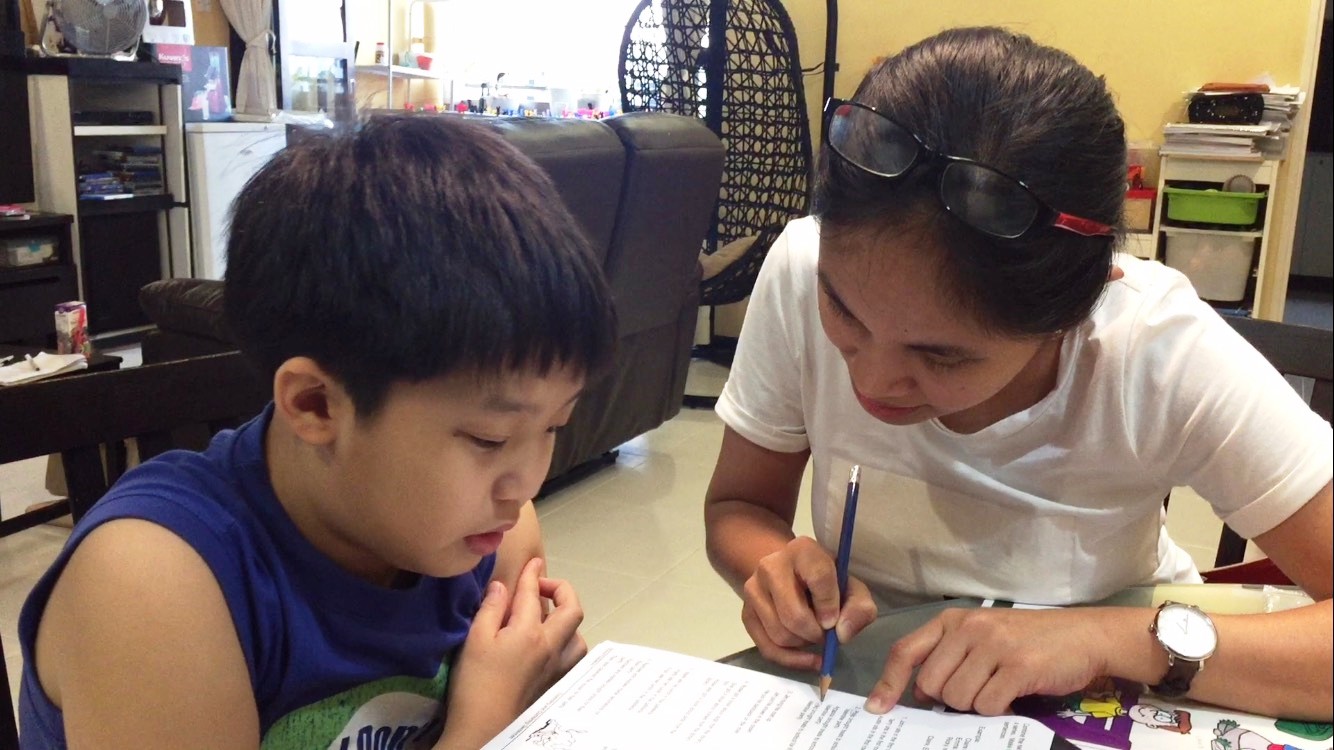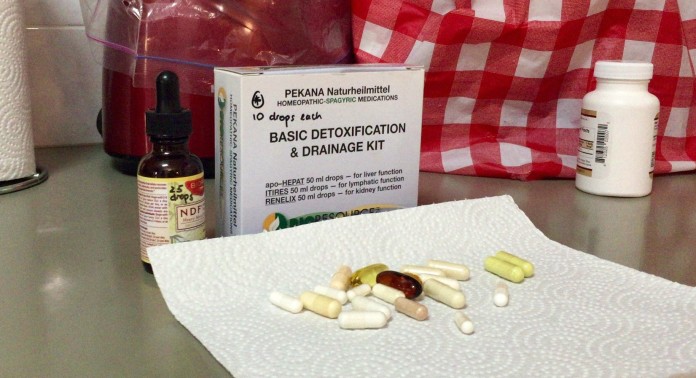SINGAPORE: Nicholas Yee took a deep breath, held his nose and swallowed his drink. The 11-year-old boy hurried to the kitchen for water, to help the thick yellow liquid go down.
The small cup contained more than 20 different supplements and vitamins, including flax seed oil, Vitamin C and several types of probiotics, dissolved and mixed into water to make it easier for Nicholas to swallow. Diagnosed with autism at two, Nicholas goes through the routine twice a day; and his mother Yee Gek Lang says that his daily regimen has not only helped manage his autism, but has also made him healthier and happier.
“When Nicholas was younger he used to fall sick very easily, almost every month,” said Mrs Yee. “But since we started the probiotics, he’s hardly fallen sick.”
She added that she has also seen improvements in his attention span. “We see less spacing out, and he is able to stay focused during his learning and therapy.”
WORD OF MOUTH
Mrs Yee said she found out about probiotics about ten years ago after joining an online forum for parents of children with autism. “One parent was sharing about these probiotics and supplements on the forum, and how it benefited her son. So I started to read up more,” she said. “After reading up, I decided I wanted to give it a try, and that’s when we started the probiotics journey.”

The supplements Nicholas takes twice a day. (Photo: Lianne Chia)
Parents usually find out about the effectiveness of probiotics through word of mouth, according to Dino Trakakis, founder of early intervention centre Autism Recovery Network. “Parents sit in the front room and they start talking to each other,” he said. “Unfortunately, they like to compare their children, and when they see a child getting better faster than theirs, they start asking that parent questions and often the first thing that comes up is probiotics.”
The Autism Recovery Network offers Applied Behaviour Analysis (ABA), a type of early intervention therapy for children with autism. Mr Trakakis said he estimates that about 70 to 80 of the children he sees are taking probiotics. “In about 50 of those children, we can see a difference in a couple of days, up till a week, and the others will take slightly longer,” he said. “I’ve never seen a child regress from probiotics, and it does seem to alleviate some of the symptoms they are displaying.”
“After taking probiotics in the right dosage and type, they tend to be calmer, happier and more attentive. They tend to be more willing to follow tasks, whether in a one-to-one or group session,” he added.
PARENTS CAUTIONED
But doctors Channel NewsAsia spoke to said there is little scientific evidence that taking probiotics can benefit children with autism.
“While there were some investigations recently that showed a particular strain of bacteria helps improve socialization in mice when ingested, there is no indication whatsoever that it may help in children with autism,” said Dr Lim Boon Leng, a psychiatrist from Gleneagles Hospital.
“While taking an appropriate amount of probiotics is not harmful, it is highly unlikely that any probiotic products available at present will have any significant impact for autism,” he added.
“In viewing the literature so far, it looks like there are small groups of patients that have benefited from taking probiotics,” said Dr Chin Chee Hon, a consultant at the Institute of Mental Health’s Department of Child and Adolescent Psychiatry. “But this is particularly in patients that have underlying gastrointestinal problems, and who have improved a little in their autistic symptoms as well.”
Dr Chin added that probiotics are also “not a mainstream treatment” for autism, and it is for that reason he does not personally recommend them. But if patients are “very keen” to go ahead, he said he would not stop them from doing so, as he has done in other instances when patients want to try out treatments that are not proven to be helpful.
Parents should, however, be aware of the risks and benefits of such alternative therapies. “One piece of advice I could give is to have an open conversation with such practitioners, to identify the key problems and solutions that you hope to aim for,” he added.
And probiotics aside, going overboard on supplements can be dangerous.
Doctors in London recently reported a case of a 4-year-old boy with autism who was brought to the emergency room of a hospital after experiencing severe vomiting, loss of appetite, weight loss and abnormal thirst. It later turned out that his mother had been giving him 12 different supplements recommended by an alternative therapist, including calcium and Vitamin D.
NO MIRACLE CURE
Despite what she sees as progress, Mrs Yee is still circumspect. “When we first started the treatment for Nicholas, we only started with one probiotic. But even though he has progressed and improved over the years, he’s taking even more probiotics than before,” she said. “Over the years, we’ve tried different types of probiotics for my son, and we don’t see a significant impact for some of them.”
She added that even though her son may be benefiting from probiotics, she has not stopped Nicholas’s other therapies. This includes occupational therapy and one-on-one ABA sessions held at home.

Nicholas undergoes a session of Applied Behaviour Analysis therapy. (Photo: Lianne Chia)
Another parent, Corinne Yeo, tried to start her ten-year-old son on probiotics last year, but she said it did not work out.
“My son has very sensitive taste buds so he only drinks ice cold water,” she said. “We bought tasteless, odourless and colourless probiotics, but he’s so sensitive he can detect them even when we mix in very small amounts into his water, and he would refuse to drink it.”
She added that she recently decided to try again, and was surprised when her son started taking the probiotics. She has, however, not seen any effects so far.
DOING EVERYTHING THEY CAN
For parents like Mrs Yee and Mdm Yeo, the experimentation with probiotics is but one small part of their overall efforts at managing their children’s autism. And it does not come cheap.
Mrs Yee spends about S$5,000 a month on things ranging from therapy, biomedical treatment to ordering probiotics online. She had also tried out speech therapy when Nicholas was first diagnosed, but found that it was not very effective.
Nonetheless, she says it is money well spent.
“It’s costly to maintain all these expenses but I think it’s essential,” she explained. “To me, these are critical interventions that parents can do to help a child who is delayed in his development.”
She added that the improvements she has seen in her son over the years are significant. “When he was younger, I would never have dreamed than my son would be able to cope with the mainstream curriculum, but here he is now.”
Mdm Yeo spends about S$3,000 to S$3,500 a month on costs like school fees, ABA therapy, speech therapy and piano lessons. So far, she said, all this has helped her son substantially.
The motivation is borne out of a desire to do everything she can as a parent, and she is encouraged by the results she has seen so far.
“He’s a lot more compliant now as compared to when he first started, and he’s increasingly manageable,” she said, adding that while her son is still “not quite verbal”, he is slowly building up his speech.
“The money spent is worth it,” she said. “I’m still young enough to work and afford this, so I have to make sure that whatever I can do now, I do now.”
“In the future, when my husband and I are not around, the minimum we can hope to achieve is that he’s independent enough to support himself so I don’t have to worry.”





